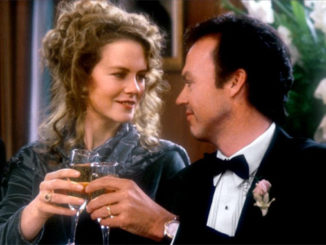
by Louis Bertini, MPSE

At a recent technology conference, a noted software developer gave a talk entitled “Copyright Is Dead.” The thrust of his argument was that the myriad avenues for the distribution of data over the Internet rendered copyright protection a hopeless cause. And he went further: “Information should be free. Information is dynamic, ever growing and evolving, and cannot be contained within any ideological structure. The internal force of information makes it essentially incompatible with notions of proprietary software, copyrights, patents or subscription services.”
He quoted the following passage from author Robert Heinlein: “There has grown up in the minds of certain groups in this country the notion that because a man or corporation has made a profit out of the public for a number of years, the government and the courts are charged with the duty of guaranteeing such profit in the future, even in the face of changing circumstances and contrary to public interest. This strange doctrine is not supported by statute or common law. Neither individuals nor corporations have any right to come into court and ask that the clock of history be stopped, or turned back.”
The speaker went on, “Copyright is dead. It may take 10 or 30 years to die, but it’s dead. Would someone please notify the Recording Industry Association of America? The rest of us have work to do, and the clock of history is still ticking.”
At the end of his talk, a person in the audience got up and asked, “If copyright is dead, do you plan to release your next program for free on the Internet and forego any royalties?” The speaker turned red. “I’m not discussing myself at all here,” he replied. “I’m talking about a principle.”
That so-called principle has been a mantra for much of the Internet culture: “Information wants to be free. The Internet should be unrestricted. Any data that finds its way into my computer is mine for the taking. Piracy is a victimless crime.”
Distribution of pirated files has been going on for almost as long as the Internet has been in common use. It began with the trading of MP3 files on peer-to-peer networks like Kazaa and Napster, and continues today with the trading of pirated DVDs on the BitTorrent protocol. However, this is just one level of piracy as there are other ways that people have abused copyright laws which have affected companies deeply, that is why there are steps put in place to protect their content/products by using something similar to a copyright infringement lawyer California firm or similar ones, so they can back up their claim and protect what is theirs.
A generation has grown up thinking that since it’s so easy to access this content, it can’t be wrong. But if roadblocks are placed along the way, it is hopeful that people will abide by the same laws they follow normally.
Proponents of file-sharing often suggest that they have a right to the information they distribute and that this distribution is a form of expression. They sometimes justify these rights by citing the First Amendment to the United States Constitution, which pledges, “Congress shall make no law…abridging the freedom of speech.” They somehow think that freedom to speak equals freedom to steal.
File-sharing advocates rationalize their actions by claiming that they would not have purchased the content anyway. They argue that freely obtaining a digital copy of something is not theft because a tangible, physical item has not been stolen; thus, it is a victimless crime.
They also support the notion that Internet piracy has no economic impact and, if it does, the impact is insignificant and can be easily defended. Those who illegally download content online don’t perceive their individual action to be much of a problem.
But when millions of people take the same action, the economic harm is enormous. People often don’t even realize that they’re downloading illegal content because many rogue websites look real, like their legitimate counterparts such as Hulu, Netflix or iTunes. Further, when you enter “download movies” into an online search engine, the top results are often sites with illegal content. The accumulation of this activity can mean that more than 24 percent of Internet bandwidth goes to rogue sites.
Since the entertainment business is the most immediate victim of piracy, those of us who work in it are among the first to suffer from its effects. It is estimated that $53 billion worth of motion picture revenue will be lost to pirated content by the year 2015. The risk of setting aside capital to fund new movie projects, when so much money is lost due to piracy, is a huge concern to the studios. And, of course, piracy has a chilling effect on those willing to risk their capital for future projects.
Proponents of file-sharing often suggest that they have a right to the information they distribute and that this distribution is a form of expression. They somehow think that freedom to speak equals freedom to steal.
Additionally, the funding of the Motion Picture Industry Pension and Health Plans (MPIPHP) relies heavily on the residuals it receives from motion picture profits. Digital piracy lowers the amount of those residuals. By some estimates, our Plans are losing as much as $100 million of revenue per year due to piracy. At a time like this, when we are working so hard to keep the MPIPHP solvent, we cannot afford this loss.
A generation has grown up thinking that since it’s so easy to access this content, it can’t be wrong. But if roadblocks are placed along the way, it is hopeful that people will abide by the same laws they follow normally. A recent poll suggested that if people received a notice from their Internet Service Provider (ISP) that they had illegally downloaded content, most of them would stop.
The large ISPs have agreed to provide some help in this effort, and are policing their networks in an attempt to identify illegal traffic. If they notice unauthorized file-sharing, they will send out a warning to the subscriber. If the action continues, they will threaten to terminate the service.
I have a friend who recently experienced this. He admitted to me that he had downloaded a pirated feature. Shortly afterwards, he got an ominous e-mail message from Comcast saying that it had registered the illegal download and would take action if that happened again.
So Big Brother, in the form of ISPs, may be watching us after all. And in this circumstance, it could actually do some good. Heinlein and George Orwell might not agree––but they didn’t have to worry about losing their health insurance because of digital piracy.
You are encouraged to join Creative America in its campaign against digital theft. Visit www.creativefuture.org for more information.





